If you’ve recently dropped in to the Hearts
& Minds Facebook page, you’ll know we were just in Boston selling books
with the Christian Legal Society, a fascinating organization of Christians who
are lawyers, judges, law profs and such.
This is a large challenge and huge privilege for us. When we work with these kinds faith-based
professional associations or hang out with activist folks, we are glad for their
ministries and service, scattered in the world. That God’s Kingdom is advanced in some way through their
witness and work – or at least signposts are created that point the way – seems
evident and reminds us that God cares about God’s whole world, not just the
institutional church where believers gather. God’s people are still church even
when they leave the worship space, where they’ve first processed to gather, and then been
commissioned to leave in service. It is obvious that the commonwealth of God
grows – like that parable of the tree flourishing so that even the birds find
refuge – and that the Kingdom of God is a unifying theme of the entire covenant
story of Scripture.
But what is God’s
Kingdom?
Thanks for asking. It’s a million
dollar question, and we’ve got a new book that explores it well. Unless one is willing to settle for an
undeveloped simple view, or work to wade through weighty theology tomes, this
may be one of the best ways into this important conversation.
We are very excited about the new
Brazos Press hardback release, Kingdom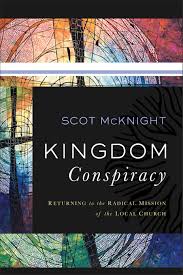 Conspiracy: Returning to the Radical
Conspiracy: Returning to the Radical
Mission of the Local Church by Dr. Scot McKnight (regularly $21.95; our BookNotes sale
price is $17.60) and want to commend it to you. But first, some of my own thoughts about it, such as they
are.
One the large assumptions behind the
nature of our store and the diverse array of topics we offer — books on
science, art, media, education, psychology, environmental science, war and
peace, politics, film, outdoor adventure, engineering, urban affairs,
parenting, nutrition, literature, and so much more — is that the redemptive
work of God in the world (Jesus called it the Kingdom of God) includes all
areas of life (not just church and “religion”) and He has inaugurated a trajectory
that promises the full and glorious restoration of all creation. I think it is our wide selection of
books in so many categories, and our hope to suggest “Kingdom perspectives” in
all fields that appeals to those who invite us to serve their events, like the
aforementioned CLS. If somebody
asks us why we carry books on faith and law or faith and art or faith and
science, we suspect they simply don’t have a very fully developed understanding
of the Kingdom of God.
There are many authors who in recent
years have underscored this vision of the reformation of all things (think of
N.T. Wright, just for instance, or our celebration of the For the Life of the World DVDs.) Many mainline denominational
churches have an implicit vision of the restoration of all things, but seem a
bit embarrassed by eschatology, not wanting to get mixed up in any goofy “left
behind” stuff. So their own best resources for an “all of life redeemed”
whole-life discipleship lie too often undeveloped or untapped.
One of our favorite authors along these
lines who does offer a wide and wholistic vision is the remarkably productive
New Testament scholar Scot McKnight. His excellent King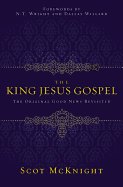 Jesus Gospel: The Original Good News Revisited (Zondervan; $19.99)
Jesus Gospel: The Original Good News Revisited (Zondervan; $19.99)
and the very useful, fun, One.Life: Jesus
Calls, We Follow (Zondervan; $14.99) are both fine books. Both offer this broad Kingdom vision
and are very helpful as we explore how to bear witness to the coming Kingdom “on
Earth as it is in Heaven.” His
book on how to read the Bible well, Blue
Parakeet: Rethinking How You Read the Bible (Zondervan; $14.99) offers the
very story of God’s faithfulness to the creation, and Christ’s redemptive story
to heal and restore all things, as the key to read the plot line of the
Bible. He really gets this big
picture story of God’s creation-restoring good news. (McKnight’s very popular Jesus Creed, by the way, was just re-released
in an updated and slightly edited edition; that guide helps us live out the way
of Jesus in daily life, learning to love God and others – wow, what a book!)
WHAT IS THE KINGDOM?
Many of us have been wishing for
McKnight to spell out more of what he means by the Kingdom, what the reign of
God is and isn’t, sort of a deeper follow-up to the very good King Jesus Gospel. This brand new Brazos Press book, Kingdom
Conspiracy, may be his best effort yet. Despite my own disagreement
with its biggest conclusion, it is going to be very, very helpful and we are
happy to help promote it. It is a
book that loyal Hearts & Minds friends, especially, should consider owning. It is very seriously informed by wide
reading of the best scholarship – how does McKnight do it, knowing so much
about so many sub-categories? — and offers learned, but clear and interesting explanations. It is a fine, fine book.
SKINNY JEANS AND PLEATED PANTS
Without a doubt, Mr. McKnight is sounding
a bit of an alarm, and insofar as he is truly picking up concerns, I applaud
his calling us to better formulations.
I don’t know how many people really say this, but McKnight seems to
think that some writers and leaders believe that any good effort in the world —
say, a social justice campaign or deeds of public righteousness, mercy, art,
kindness, seeking the peace of the city — necessarily builds God’s Kingdom. He claims that many younger
post-evangelicals, especially (and he should know, he teaches them at Northern
Seminary and is exceptionally involved in on-line writing and discussion) are
not dissimilar to the older (mostly bankrupt) social gospel movement that
seemed to think any decent human action could be considered a mark of the reign
of God and in some way redemptive. God’s Kingdom a-coming was so combined with
the hopes of human progress that serious consideration of salvation, the role
of the cross, and the necessity of the church was pretty much left behind. In
that view, which McKnight cleverly calls the “skinny jeans” view of the Kingdom,
there is such an emphasis on cultural engagement and social witness that there
isn’t much concern about evangelism or personal piety. He contrasts this, perhaps with a nod
to Willow Creek baby boomers, with the “pleated pants” gospel, which, as you
can guess, overemphasizes personal evangelism and conventional views of
constricted salvation aimed at getting people to heaven and perhaps a
moralistic view of one’s inner life.
(Of course there are also old school
fundamentalists with a conservative, narrow faith who wear skinny jeans, and
there are some pretty radical voices coming from guys in pleated pants. So,
yeah, his clever set-up is only somewhat helpful, as if age or aesthetics were
the determining factor as to whether one has a typically liberal view of a
social gospel or a more typical evangelical view of a privatized one. These
caricatures do help get the conversation started, at least, so don’t let that
trip you up. Skinny jeans or pleated pants. Ha.)
In contrast to both kinds of wardrobe
malfunctions (that’s my little contribution to the cleverness afoot) Scot wants
to say clearly that the Kingdom of God is more than personal salvation or the
promise of a heavenly afterlife, but he also insists it is more than working
for social justice, much more. In The
Kingdom Conspiracy, McKnight covers Biblical and theological ground
that others have explored, although he brings his own urgent angle. The must-read
book on this part of the story in my view is the impeccable Good News and Good Works: A Theology of the
Whole Gospel by Ronald J. Sider (Baker; $20.00) which, interestingly, insists
that the theme of the Kingdom of God is the central Biblical motif that brings
together the personal and the public, word and deed, spiritual renewal and social
action.
Still, in every age we need reminded of
the epic tragedy of this terrible dilemma, this tendency for so many towards
imbalance. How sad that there are still those that are all about social concern but care little for winsome
evangelism, or those who ignore our cultural obligations and social witness due
to their overemphasis of church planting or evangelism or spiritual formation. It
seems easy to say it is “all of the above” and proclaim “the whole gospel.” Ahh, but it isn’t so easy to convince
everyone who follows Christ that it is “both/and” and that the gospel is
multi-faceted, and the Kingdom is creation-wide. Which brings us back to this question of what we mean by the
Kingdom, the reign of God, Christ’s Lordship, God’s will done “on Earth… ”
And — wait for it, there’s more… and there is the questions of the relationship
between the Kingdom and the church. As you can tell from the subtitle of McKnight’s book, this is
his biggest burden.
I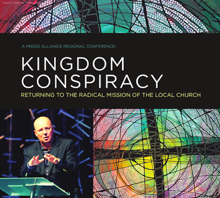 n this very contemporary assessment,
n this very contemporary assessment,
our author is convinced that both the Biblical material and the needs of the
day demand that we reassert the primacy of the local church as being the
crucible of the Kingdom. Yes, yes,
the Kingdom of God is the longed for creation restored, and Christ’s Lordship
is to be proclaimed (and lived out) in all of life, across all of culture. The
weight of the argument of The Kingdom Conspiracy, though, is
that this happens through the local church.
Even now, I can imagine eyes rolling as
some readers say – well, duh; of course. For others, I can hear the
possibilities of them buying this book slamming shut from States away. Those
pleated pants and skinny jeans are acting up again, resisting McKnight’s
challenges, even though both camps really need to consider this book. We all do.
Again, to be clear, this isn’t a new
idea. It seems to me that it has resonance in one way or another with both the
Roman Catholic and Episcopal traditions and with the Anabaptist views of the
Brethren and Mennonites.) Consider, for instance, the exceptionally important
work of Catholic Scripture scholar Gerhard Lohfink and his massive, celebrated
work, Does God Need the Church? (Michael
Glazier Books; $39.99) a title that
McKnight surprisingly doesn’t cite. Think
of lovely recent books like Slow Church:
Cultivating Community in the Patient Way of Jesus (IVP; $16.00) that surely have a culturally-engaged,
socially involved Kingdom vision, but put the locus of God’s redemptive work
within the community of faith living together in a world falling apart. (By the
way, co-author of Slow Church,
Christopher Smith will be here in Dallastown for a book talk on Friday night,
November 7, 2014.)
Another personal favorite, a wonderful
book that needs mentioned here is The
Community of the King by Howard Snyder (IVP; $18.00.) It remains one of my all-time favorite
books, and certainly one of the best on the local church, and he argues that
the church, while not the entirety of the Kingdom coming, is at the heart of
it. McKnight agrees, and his willingness
to assert this clearly is a large, important gift. It is a good book about the Kingdom of God, but he laments
our recent Kingdom visions to be somehow unconnected to the work of the church.
***
McKNIGHT’S KINGDOM VS. NEO-CALVNISM & KUYPER
Some of us who have encouraged followers
of Christ to have a prophetic imagination and Christian mind about all manner
of things — all spheres of life are being redeemed and we must be “kingdom
people” in all we do, after all — have drawn on the reformational worldview of
what some call neo-Calvinism.
(Please note that neo-Calvinism is a
theological tradition and social movement these days stemming from the feisty and
wholistic cultural reforms of the Dutch theologian of the late 1800s and early 1900s, a
journalist, academic, statesman, and Prime Minister, Abraham Kuyper and is not the same as the popular, strict “new Calvinism” which is how some
journalists describe the recent gospel coalition of those new to older forms of
Calvinism and Puritanism. Neo-Calvinists are those who make much of the
wide-as-life, creation-regained vision of renewed thinking in the line of the Dutch
public theologian Kuyper; neo-Calvinism is the wholistic
creation-being-redeemed vision that informs important voices as diverse as
Francis Schaeffer and Brian Walsh, Neal Plantinga and Richard Mouw, Nicholas Woltersdorff
and Calvin Seerveld, Herman Dooyeweerd and James Skillen, Anthony Bradley and Al Wolters, Comment magazine and Jamie Smith. I name these authors to offer further hints, spots on the map, for
whom these names might ring a bell.)
It is a fascinating aspect of Kingdom
Conspiracy that Scot McKnight interacts with this tradition, realizing that
his Anabaptist vision is at odds with this reformational heritage. You see, if, as Kuyper explored and as
most neo-Calvinists proclaim, Christ’s Kingship includes all dimensions of life
and all zones of cultural affairs, then non-church spheres are every bit as
much as God’s Kingdom as is the churchly sphere. Bankers and teachers and dancers and engineers are as much
priests as are, well, priests in the church.
McKnight seems to realize that some form of Kuyperianism is
capturing the imaginations of many these days (Andy Crouch’s wonderful CT review of For the Life of the World was titled “Kuyper Goes Pop”) and McKnight
seems to realize that a robust creation-regained worldviewish vision of the
Kingdom incarnated in all of life is one excellent way out of the dilemmas
posed by the inadequacies of the individualized traditional gospel of the
pleated pants crowd and the socially engaged emerging faith of the skinny jeans
tribes. And so, he takes on this
ascending perspective.
He briefly examines Mouw’s delightful
little book on Kuyper (Abraham Kuyper: A
Short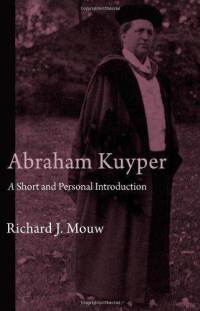 and Personal Introduction; Eerdmans; $16.00) and ponders “Kuyperian
and Personal Introduction; Eerdmans; $16.00) and ponders “Kuyperian
secularism.” In a footnote he applauds Steve Garber’s splendid book Visions of Vocation: Common Grace for the
Common Good (IVP; $16.00) calling it “important” but suggests it doesn’t
talk enough about the church, a fault he attributes to Andy Crouch’s Culture Making: Recovering our Creative
Calling (IVP; $20.00) as well.
I point this out because I know that
some of our BookNotes readers will be glad for this conversation, and will want
to follow the discussions prompted by McKnight’s re-assessment of Kingdom
theology. It is great to see a
good thinker and writer of McKnight’s stature (and popularity) grappling with
these themes of neo-Calvinism that have so influenced some of our favorite
thinkers and writers and leaders.
Allow me a big aside, a story which might help you
unpack this a bit, if you don’t intuit where this is going. Or at least it might clarify my concerns with the implications of this.
I mentioned my appreciation for the
great book The Community of the King
by the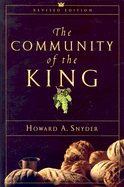 radical Wesleyan Howard J. Snyder.
radical Wesleyan Howard J. Snyder.
I’m glad that book is still in print, and I still recommend it
regularly.
You may want to know that it was the
second book I ever reviewed in a real magazine, a brief review appearing in Sojourners back in the 70s. I suggested, however, after glowing
remarks, that to insist that the Kingdom is mostly found in the supportive
relationships within the local fellowship, the church, is to not only to fail
to enunciate the wide-as-creation scope of Christ’s Kingdom, but to fail
church members by not adequately honoring the complexity of their callings to
work in the world, outside the proverbial walls of the sanctuary. I took Snyder to task, as I recall, for
telling the story of his friend and parishioner Archie, a good man and fine grocer,
with nary a word of his Kingdom obligations as
a grocer. From where does he buy his food, how does he work with vendors that
mistreat their migrant workers, what is his role in the global food industry of
cash cropping? How does Archie educate consumers about chemical additives and
such? What does it look like to be a Christian grocer, not just a grocer who
happens to be a good churchman? One person replied to me in a letter, those
decades ago, suggesting I was nuts. Another thought I was needlessly hard on old Archie.
Well, perhaps God has caused the stones
to rise up, like Jesus predicted, since we now have a major culture movement
about these very things, concerns about GMOs and healthy food and fresher
produce and fair trade, most of which have been raised by folk not known for
their Christian religiosity. If
the Kingdom is conflated with the church, you see, and the church therefore
minimizes member’s work in the world as holy vocations, we end up with a
disconnect between Sunday and Monday, and guys like Archie, good church members
that they may be, fail to create wholesome grocery stores, fail to fight for
innovations in the supply chain, for more sustainable policies, for fair
treatment of migrants, etc. etc.
Whole Foods has done that, of course, and the Biblical God of the
renewed creation is pleased, I’m sure, although Christ should have gotten the
glory. This critique of
over-emphasizing the communal/relational/liturgical aspects of the local
church, a (minor) frustration with Community
of the King remains my concern with the present McKnight volume. He may criticize Crouch, Garber, Mouw,
or Kuyper, but what does he say to
Archie the Grocer? He is right to
poke the paucity of the skinny jeans kingdom and the old social gospel. But can
his favored sources — Yoder, say, or Hauerwas, even — provide an account of
Christian discipleship in the world that allows folks to make sense of their
workplaces, their citizenship, their engagement with the arts, with
entertainment and leisure, with the structures of media and technology that
surround them? Without a full-orbed Kingdom vision, will a churchy faith enable
us to make noble sacrifices promoting a prophetic imagination in these late
modern capitalist times? Or does a vision of the Kingdom tied so closely to the
church necessarily call us and our interests out of the institutions of life,
and unwittingly promote an escapist pseudo-gospel? I know McKnight does not intend for his church-based Kingdom
approach to have this effect. I
cannot see how it would not.
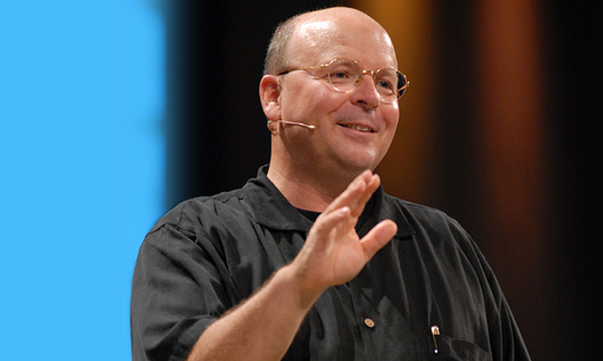 Of course, McKnight mostly expounds the
Of course, McKnight mostly expounds the
Scriptures, and this is mostly rich, good stuff. I was thrilled reading much of this, and learned quite a lot by
looking at his sources, his good footnotes and the two fabulous appendices.
Along the way he reflects helpfully on the strengths and weaknesses of the old
evangelical left and the Christian right, he explores the work of Tom Wright,
Jurgen Moltmann, Rauschenbusch and the social gospel, James K.A. Smith, Brian
Blount, and many more who have offered hints at the nature of the Kingdom and
the relationship between the Kingdom and the local church. We always need
reminded of “the Constantinian temptation” and in this, McKnight’s project isn’t
unrelated to the much-discussed To Change
the World by James Davison Hunter (Oxford University Press; $27.95.) Again, I like that he tweaks both the “skinny
jeans gospel” of recent missional hipsters, and the “pleated pants gospel” of
the mega-church baby boomers – fully aware (I think, anyway) that these are
playful caricatures and goofy foils for his case. But with that, he leads us to
a more full-orbed and Biblically-solid explanation of the Kingdom and the
centrality of the church gathered.
So, his case, again, is two-fold: In
contrast to the inadequate formulations of the exclusively personalistic or
social gospels, he offers a robust, multi-dimensional, incarnational, wholistic
Kingdom that is Christ-centered and promissory about the renewal of the cosmos.
But he further insists, then, that this Kingdom of God a-coming is, in fact,
seen most clearly in the moral community called the local church. “Kingdom
mission creates communities of the redeemed” he insists. So, if you aren’t a church planter,
well, I guess your work isn’t related to the Kingdom of God. You know that
lovely and provocative For the Life of
the World we have been promoting?
Forgetaboutit.
Okay, sorry — I’m being a little
facetious. You’ll have to read it yourself to see if I’m being fair. He deserves a fair reading, as he is a
good author and important writer and this is his most significant work in years.
I will admit that I love reading nearly
anything on the gospel and anything that helps us understand and love and
promote the gospel is good. And McKight has always been a very reliable guide for me. (He has a book on Mary, a book on fasting, a book on the Sermon on the Mount, and more.)
McKnight inspires
us with missional energy and visionary hopes and big dreams – note the word “radical”
in the subtitle – even if he constricts the scope of the Kingdom and seems
therefore to minimize the significance of so much of what ordinary lay people do
in their day to day (non-church) life. Yet, I trust McKnight on this because,
in his aforementioned books, he elevates the “one life” we live, in Christ,
relating faith to our work, politics, recreation, sexuality and more. I don’t
know if his view of the Kingdom which is so thoroughly offered here will erode
the importance of his books on whole-life discipleship like One.Life but it seems like it might. (If
the church is really where it’s at, the locus of the Kingdom, then, really, why
must we fuss so much about public theology and aesthetics and justice and
living faithfully across the many zones of life?)
This is a question I’ve hosted since
the late-1970s when I studied both Richard Mouw (a Dutch Kuyperian) and the
late John Howard Yoder (a Mennonite, who has influenced McKnight) as they
engaged in Reformed/Anabaptist discussions about the role of creation and
creation’s order in our views of redemption and the vocation of being “in but
not of” the world of the fallen powers.
I’ve heard Mouw tell how the distinctions between he and Yoder were once
summarized when Yoder said, “Mouw, you always want to say reality is created, but fallen, but I want to say
it is fallen but created.” Ponder
that!
The relationship of faith and real life,
church and world, Kingdom and creation, Christ and culture, remains a burning
question for me, and I think they are a constellation of questions that are
some of the most burning for the church of our era, at
least in the West. (McKnight certainly agrees that these matters are urgent,
and he has followed the debate and contributed to it, as well as most. In The
Kingdom Conspiracy he mentions many public theologians who grapple with
these matters, influential thinkers as diverse as Miroslov Volf and Os
Guinness, Walter Wink and Nicholas Woltersdorff; he discusses books such as the
recently-re-issued Resident Aliens by
William Willimon & Stanley Hauerwas.)
This is a living conversation that gets to the heart of what the Bible
teaches, what Jesus said and meant, and what we mean by being Christians “for
the life of the world” as the recent, popular DVD by that name asks. McKnight’s view of the Kingdom, it may
seem, would resonate with the last episode of FLOW, which reminds us that the
weekly gathered community worshiping together is a rehearsal of the
wide-as-creation restoration that is promised. Church is, finally,
eschatological. Or at least I
think that is what he’d say…
So, a few big thumbs up to the always-interesting
Doc McKnight. Kudos for this good work, the inspiring reminder that the local
church has a huge role to play in the “radical mission” of the Kingdom of God.
Still, as I’ve already suggested, I
think he gets it wrong, here, or at least he overstates his case, but geesh, in
these days, inviting people to church certainly isn’t that bad of a fault (as
long as it doesn’t devolve into a fetish about churchy stuff and fail to equip
the laity to serve in their homes, neighborhoods, workplaces and such.) Despite
Kingdom
Conspiracy being so very important, so very insightful in so many ways,
so very interesting to read, I still want to insist that the local church need
not be over-emphasized and our view of the Kingdom should be as wide as the
Bible says it is – “the Earth is the Lord’s and the fullness thereof!” McKnight is a careful and generous
scholar, and his serious, exciting book deserves to be studied carefully (and
reviewed seriously, more seriously than I am able to do here.)
The blurbs on
the back are notable and serious — Soong Chan Rah reminds us that
the
misappropriation of faddish terms can be an unfortunate reality for American
Christians. The casual manner in which we toss around phrases like “kingdom
theology” and “missional churches” can have an adverse effect on our efforts to
form a robust ecclesiology… With prescient analysis and pastoral insight,
Scot McKnight succeeds in providing a scriptural and theological text for those
who have heard the word so often but failed to think through its meaning.
Greg Boyd says,
McKnight brings much-needed
clarity to what ‘kingdom of God’ means -and doesn’t mean – and how it relates
to the church and its mission. This book needs
to be read by everyone – scholars and laypeople alike – who want to understand
and consistently live out what it means to be a follower of King Jesus.
I am glad for any author that calls us
to church: to deeper liturgy, to worship well, to intentional body life, to
parish commitments, to congregational revitalization. Yes, of course! We are confident
that this is an important book that is sure to deepen your understanding of the
Bible and contemporary theological trends, and make you think – hopefully with
others – about the purpose of our discipleship, what it means to be Kingdom
people, and the joy and implications of the Lordship of Christ, in the church
and, yes, in the world.
TWO MORE
Although they deserve much more time
and space to review fairly, here are two other great books that came to mind as
I wrote this, one quite new, one newly released in paperback:
J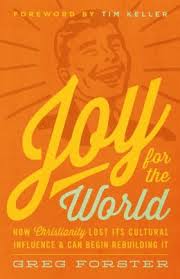 oy for the World: How Christianity Lost Its
oy for the World: How Christianity Lost Its
Cultural Influence & Can Begin Rebuilding It Greg Forster (Crossway)
$18.99 When reading McKnight and
his concerns about the hipster skinny jeans gospel that emphasizes social
reform to the exclusion of evangelism or sound doctrine (not to mention his
concern about the cheesy pleated pants gospel of merely personal salvation with
little concern about betterment of the world or social reform) This is an
amazing book and despite the fun retro cover, has little to do with any
romantic return to the 50s. With a
stellar, foreword by rigorous Manhattan pastor Tim Keller, this offers ruminations
on the cultural mandate, the Kingdom coming in all of life, the promise of
restoration and hope, all inspired by lines from that marvelous hymn by Isaac
Watts.
I love the Timothy George quote on the
back of Joy to the World: “This book is against sequestration – the
sequestration of Christian life into ‘spiritual’ enclaves and churchly ghettos.
But it also wants to the church to be the church – uncompromised, vibrant, and
filled with joy.” Our friend Amy Sherman notes that “Forster’s deft grasp of
history, philosophy, and theology enables him to offer up this rigorous yet
accessible book.” Forster (PhD,
Yale University) is a program director at the Kern Family Foundation, a socially
engaged organization, even as he affirms the central role of the church. He
laments that the church has lost its culture-shaping voice and civilizational
influence. He draws on the vivid
and very public language of Joy to the
World, where the “Earth receives her King” and blessings flow “far as the
curse is found.” What would
McKnight say about this? How is
McKnight’s view of the Kingdom different than Forster’s?
T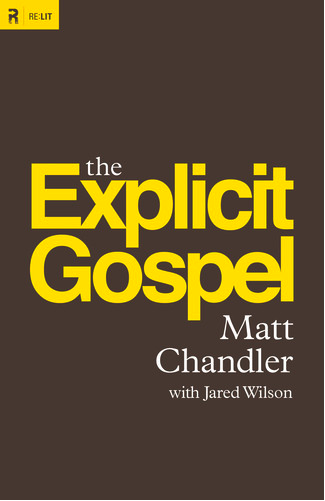 he Explicit Gospel Tim Chandler (Crossway)
he Explicit Gospel Tim Chandler (Crossway)
$14.99 I will admit that I love reading nearly anything on the gospel and anything
that helps us understand and love and promote the gospel is good. Chandler is a passionate young pastor of
a successful Reformed church plant in Texas, and is a person who is
increasingly known and respected. (That he recovered from a dangerous brain
tumor is a great blessing. His latest book, btw, is a great study of Philippians,
To Live is Christ, to Die is Gain.) We
should always be immersing ourselves in these conversations – just what is the gospel,
why did Jesus so regularly describe the gospel as the gospel of the Kingdom and what does that mean and look like? We should so value Christ and his beauty
and his saving work that we are explicit about our commitments. Ahh, but,
again: what is the gospel about which we are to be explicit.
This wonderful book compares and
contrasts and holds in tension a mostly individual gospel understood mostly
through systematic theology which unpacks atonement/justification and the more
wholistic gospel of cultural restoration based on the Biblical narrative of
creation-fall-redemption-restoration. He wisely explains what happens when
faith communities (or individuals, I suppose) dig too deeply into a
personalized gospel of personal salvation without the Biblically-required
vision of the Kingdom. And, similarly,
he shows how some of those who proclaim the full gospel of the Kingdom soon
neglect central theological truths (about salvation, about the cross) dreaming
big dreams of a renewed creation. His point is clear: we need both vocabularies and both
approaches to b speak about the Kingdom and the gospel as the Bible does. This
isn’t exactly the “pleated pants gospel vs. the skinny jeans gospel” of
McKnight; as Chandler portrays these two ways in to the understanding of the
gospel, both are strong, faithful, solid approaches (at their best.) We need to
talk about Christ as simultaneously as savior and Lord; the good news includes
personal salvation and cosmic hope. The Explicit Gospel would be a good
book to frame why McKnight is so concerned about sloppy appropriation of
Kingdom language and missional projects that are unhinged from the local church
and confused about the nature of salvation, renewal, restoration and the like.
BookNotes

SPECIALDISCOUNTANY ITEM MENTIONED
20% off
order heretakes you to the secure Hearts & Minds order form pagejust tell us what you want
inquire here
if you have questions or need more information
just ask us what you want to know
Hearts & Minds 234 East Main Street Dallastown, PA 17313 717-246-3333
 from small and struggling churches who we served again this year at Wee Kirk — Scottish Presbyterian-ese for small church. Every year we gather at the great Laurelville Mennonite camp in Mt. Pleasant, PA, and hear great speakers, take in important workshops, and eat lots of food, laughing and worshiping with mostly rural and small town Presbyterians friends. They buy a lot of books from us, and we thought we’d share a few of the best sellers, or at least some that were nicely discussed. I have to be quick — let us know if you have questions, or want other such resources.
from small and struggling churches who we served again this year at Wee Kirk — Scottish Presbyterian-ese for small church. Every year we gather at the great Laurelville Mennonite camp in Mt. Pleasant, PA, and hear great speakers, take in important workshops, and eat lots of food, laughing and worshiping with mostly rural and small town Presbyterians friends. They buy a lot of books from us, and we thought we’d share a few of the best sellers, or at least some that were nicely discussed. I have to be quick — let us know if you have questions, or want other such resources. 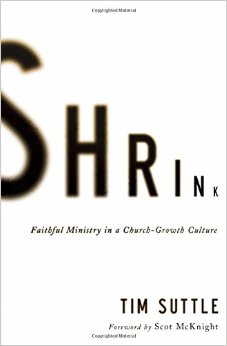 hrink: Faithful Ministry in a Church-Growth Culture Tim Suttle (Zondervan) $16.99 I raved about this from up front, indicating how very well written it was, about how great the foreword by Scot McKnight was, and for all the great pull quotes on nearly every page that are themselves great gems for those who aren’t serious readers. It is dedicated to pastors of small churches, and carries endorsements such as this by Chris Smith (author of Slow Church), “Shrink is one of the wisest and most significant evangelical books that I’ve read in the last decade; it is essential reading for every pastor and church leader!” I agree. This book is extraordinary, offering critique to our fascination with bigness and growth, and calling us to fidelity and maturity.
hrink: Faithful Ministry in a Church-Growth Culture Tim Suttle (Zondervan) $16.99 I raved about this from up front, indicating how very well written it was, about how great the foreword by Scot McKnight was, and for all the great pull quotes on nearly every page that are themselves great gems for those who aren’t serious readers. It is dedicated to pastors of small churches, and carries endorsements such as this by Chris Smith (author of Slow Church), “Shrink is one of the wisest and most significant evangelical books that I’ve read in the last decade; it is essential reading for every pastor and church leader!” I agree. This book is extraordinary, offering critique to our fascination with bigness and growth, and calling us to fidelity and maturity. ail: Finding Hope and Grace in the Midst of Ministry Failure J.R. Briggs (IVP) $16.00 I have written about this before, and couldn’t wait to share with these church leaders the great story behind this, Briggs own dis-ease with the “success” and big-time glitzy visions of so many other church conferences and books and websites. His own “epic fail” lead to shame and discouragement, and not a few Wee Kirk friends share this sense of rejection and betrayal that comes with ministry failure. The introduction by Eugene Peterson is wise and good, and if the story of J.R.’s coming to the transforming role of not measuring up to the heroism and big successes of the church-world enterprise can help folks recover from their pain and cope with their disillusionment, we are more than glad to promote this. It was a big hit, for good reason. Highly recommended.
ail: Finding Hope and Grace in the Midst of Ministry Failure J.R. Briggs (IVP) $16.00 I have written about this before, and couldn’t wait to share with these church leaders the great story behind this, Briggs own dis-ease with the “success” and big-time glitzy visions of so many other church conferences and books and websites. His own “epic fail” lead to shame and discouragement, and not a few Wee Kirk friends share this sense of rejection and betrayal that comes with ministry failure. The introduction by Eugene Peterson is wise and good, and if the story of J.R.’s coming to the transforming role of not measuring up to the heroism and big successes of the church-world enterprise can help folks recover from their pain and cope with their disillusionment, we are more than glad to promote this. It was a big hit, for good reason. Highly recommended.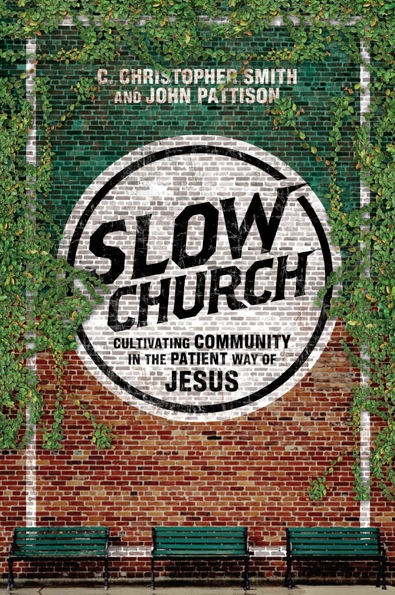 low Church: Cultivating Community in the Patient Way of Jesus C. Christopher Smith & John Pattison (IVP) $16.00 Okay, maybe I was a little prideful, showing off when I announced this, since our BookNotes blog was one of the first places to review this amazing book, and we are hosting Chris Smith to speak here on November 7th. But my own gushing aside, Wee Kirk folks — who may or may not have heard of the “slow food movement” — intuit that church is about quality, not quantity, and that relationships and patience are the way of the Kingdom. We celebrated this good book, assured the gathering that it was perfect for book clubs and classes in their own small congregations, and — yes — it will challenge them, since even small churches often try to row faster, work harder, fret more then they should, trying to give the appearance of success. This counter-cultural book commends a radical critique of the modernist worldview and the typical American “fast food” franchise habits, re-framing the way we even think about our lives, and re-imagining the very nature of the faith community. Slow Church is one of the most radical church books I’ve read, utterly faithful, and brilliant.
low Church: Cultivating Community in the Patient Way of Jesus C. Christopher Smith & John Pattison (IVP) $16.00 Okay, maybe I was a little prideful, showing off when I announced this, since our BookNotes blog was one of the first places to review this amazing book, and we are hosting Chris Smith to speak here on November 7th. But my own gushing aside, Wee Kirk folks — who may or may not have heard of the “slow food movement” — intuit that church is about quality, not quantity, and that relationships and patience are the way of the Kingdom. We celebrated this good book, assured the gathering that it was perfect for book clubs and classes in their own small congregations, and — yes — it will challenge them, since even small churches often try to row faster, work harder, fret more then they should, trying to give the appearance of success. This counter-cultural book commends a radical critique of the modernist worldview and the typical American “fast food” franchise habits, re-framing the way we even think about our lives, and re-imagining the very nature of the faith community. Slow Church is one of the most radical church books I’ve read, utterly faithful, and brilliant.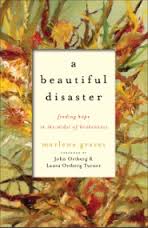 Beautiful Disaster: Finding Hope in the Midst of Brokenness Marlene Graves (Brazos) $15.99 Two things we find everywhere we go: many people are hurting, or have been through serious anguish in their lives, and people of faith long for greater experiences of God, and are interested in practicing spiritual disciplines which make room for God to work in their lives. That is, the two things this book is about — spirituality during hard times — is exactly what folks need. Marlena (who grew up in rural North-Western Pennsylvania, where many of our Wee Kirk friends are from) has been through a lot, tells her story well, and offers Biblical insight about God making a way in the wilderness. Beth and I knew it would be a hit.
Beautiful Disaster: Finding Hope in the Midst of Brokenness Marlene Graves (Brazos) $15.99 Two things we find everywhere we go: many people are hurting, or have been through serious anguish in their lives, and people of faith long for greater experiences of God, and are interested in practicing spiritual disciplines which make room for God to work in their lives. That is, the two things this book is about — spirituality during hard times — is exactly what folks need. Marlena (who grew up in rural North-Western Pennsylvania, where many of our Wee Kirk friends are from) has been through a lot, tells her story well, and offers Biblical insight about God making a way in the wilderness. Beth and I knew it would be a hit.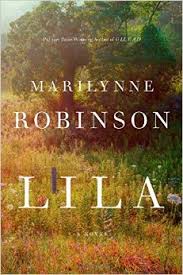 ila: A Novel Marilynne Robinson (FSG) $26.00 What a joy to let people know that this new book released this very week. As you hopefully know, it is a new novel, the story about the wife of the pastor in Robinson’s beloved Pulitzer Prize-winning novel Gilead. We sold Gilead, Home, and Lila. That Robinson herself is not only a brilliant storyteller but a Calvin scholar is pretty great. We had announced this as pre-order but Wee Kirk was the first place I got to announce it. Nice.
ila: A Novel Marilynne Robinson (FSG) $26.00 What a joy to let people know that this new book released this very week. As you hopefully know, it is a new novel, the story about the wife of the pastor in Robinson’s beloved Pulitzer Prize-winning novel Gilead. We sold Gilead, Home, and Lila. That Robinson herself is not only a brilliant storyteller but a Calvin scholar is pretty great. We had announced this as pre-order but Wee Kirk was the first place I got to announce it. Nice. omewhere Safe with Somebody Good Jan Karon (Putnam) $27.95 Of course our small-town church folk loved hearing that there was a new Mitford book, and that we had autographed copies of this handsomely made hardback on hand made it that much better. Fun. If you order any soon, we’ll send a true, autographed copy (no extra cost.) While our supplies last.
omewhere Safe with Somebody Good Jan Karon (Putnam) $27.95 Of course our small-town church folk loved hearing that there was a new Mitford book, and that we had autographed copies of this handsomely made hardback on hand made it that much better. Fun. If you order any soon, we’ll send a true, autographed copy (no extra cost.) While our supplies last.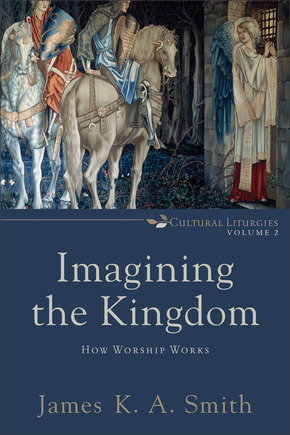 magining the Kingdom: How Worship Works James K.A. Smith (Baker Academic) $22.99 Last year I regaled the Wee Kirk community with the urgency of reading anything by Jamie Smith, and challenged them to dig deep into the importan
magining the Kingdom: How Worship Works James K.A. Smith (Baker Academic) $22.99 Last year I regaled the Wee Kirk community with the urgency of reading anything by Jamie Smith, and challenged them to dig deep into the importan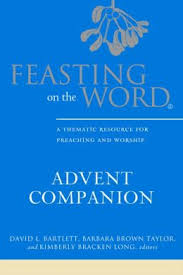 easting on the Word Advent Companion: A Thematic Resource for Preaching and Worship edited by David L. Bartlett, Barbara Brown Taylor, and Kimberly Bracken Long (Westminster/John Knox) $25.00 Of course at any gathering where there are clergy, we take all four volumes of the Feasting on the World lectionary preaching series for whichever year we are in or approaching (we are approaching Year B, starting in Advent.) We take the Feasting on the Word Worship Resources and Daily Feast, the compact, faux-leather, daily devotional based on these same lectionary-based resources. This one is spectacular, with lectionary exegesis for preaching, worship aids, children’s sermon ideas, Advent and Christmas hymn ideas, suggestions for mid-week services, etc. We sold a lot of Advent resources, but was struck by how popular this new volume was.
easting on the Word Advent Companion: A Thematic Resource for Preaching and Worship edited by David L. Bartlett, Barbara Brown Taylor, and Kimberly Bracken Long (Westminster/John Knox) $25.00 Of course at any gathering where there are clergy, we take all four volumes of the Feasting on the World lectionary preaching series for whichever year we are in or approaching (we are approaching Year B, starting in Advent.) We take the Feasting on the Word Worship Resources and Daily Feast, the compact, faux-leather, daily devotional based on these same lectionary-based resources. This one is spectacular, with lectionary exegesis for preaching, worship aids, children’s sermon ideas, Advent and Christmas hymn ideas, suggestions for mid-week services, etc. We sold a lot of Advent resources, but was struck by how popular this new volume was. 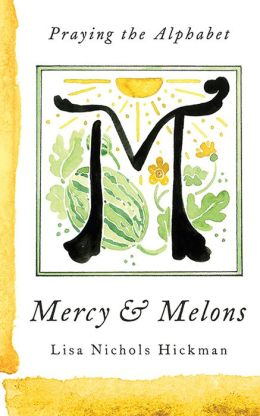 ercy & Melons: Praying the Alphabet: Thanking God for All Good Gifts, A to Z Lisa Nichols Hickman (Abingdon) $15.99 Lisa is nearly a neighbor to some of the Wee Kirk gang, and even for those who do not know her they have recalled that we had promoted her creative proposal for creative Bible study, Writing in the Margins, last year (with a contest of people who could show us their own scribbled-in, marked up Bibles.) This year, I explained about just how very lovely and very eloquent and very moving this new set of meditations is. I’m glad we’ve told you about it here before, but thought you should know how popular it was at this gathering. How ’bout that tag-line? “Thanking God for All Good Gifts, A to Z” which wonderfully links the so-called sacred and secular.
ercy & Melons: Praying the Alphabet: Thanking God for All Good Gifts, A to Z Lisa Nichols Hickman (Abingdon) $15.99 Lisa is nearly a neighbor to some of the Wee Kirk gang, and even for those who do not know her they have recalled that we had promoted her creative proposal for creative Bible study, Writing in the Margins, last year (with a contest of people who could show us their own scribbled-in, marked up Bibles.) This year, I explained about just how very lovely and very eloquent and very moving this new set of meditations is. I’m glad we’ve told you about it here before, but thought you should know how popular it was at this gathering. How ’bout that tag-line? “Thanking God for All Good Gifts, A to Z” which wonderfully links the so-called sacred and secular.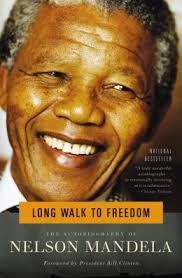 ong Walk to Freedom: The Autobiography of Nelson Mandela Nelson Mandela (Back Bay Books) $18.00 There was a wonderful workshop by a bold urban activist (and dean of student life at Pittsburgh Theological seminary, John Walsh) comparing and drawing on the social ethics of Martin Luther King and Nelson Mandela for our own contemporary social problems. Despite the reality that most small churches in this region are primarily white, and not particularly political liberal, these good folks wanted to learn more about racism, poverty and resistance to injustice. Mandela’s huge memoir was a national best-seller and the basis of a powerful movie. The Los Angeles Times Book Review reviewer said, “Irresistible. One of the few political autobiographies that’s also a page-turner.” The Financial Times raved, “One of the most extraordinary political tales of the twentieth century… for anyone interested in the genesis of greatness.” Many have put it on their life-long, best-ever, must-read lists. Three cheers!
ong Walk to Freedom: The Autobiography of Nelson Mandela Nelson Mandela (Back Bay Books) $18.00 There was a wonderful workshop by a bold urban activist (and dean of student life at Pittsburgh Theological seminary, John Walsh) comparing and drawing on the social ethics of Martin Luther King and Nelson Mandela for our own contemporary social problems. Despite the reality that most small churches in this region are primarily white, and not particularly political liberal, these good folks wanted to learn more about racism, poverty and resistance to injustice. Mandela’s huge memoir was a national best-seller and the basis of a powerful movie. The Los Angeles Times Book Review reviewer said, “Irresistible. One of the few political autobiographies that’s also a page-turner.” The Financial Times raved, “One of the most extraordinary political tales of the twentieth century… for anyone interested in the genesis of greatness.” Many have put it on their life-long, best-ever, must-read lists. Three cheers!
 Conspiracy: Returning to the Radical
Conspiracy: Returning to the Radical Jesus Gospel: The Original Good News Revisited (Zondervan; $19.99)
Jesus Gospel: The Original Good News Revisited (Zondervan; $19.99) n this very contemporary assessment,
n this very contemporary assessment, and Personal Introduction; Eerdmans; $16.00) and ponders “Kuyperian
and Personal Introduction; Eerdmans; $16.00) and ponders “Kuyperian radical Wesleyan Howard J. Snyder.
radical Wesleyan Howard J. Snyder. Of course, McKnight mostly expounds the
Of course, McKnight mostly expounds the oy for the World: How Christianity Lost Its
oy for the World: How Christianity Lost Its he Explicit Gospel
he Explicit Gospel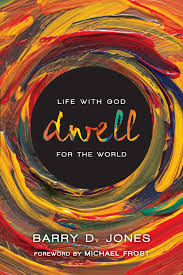 longer review than I want to give it here, and I am confident that it will be receiving a Hearts & Minds year’s end “Best Book of 2014” award — it is certainly that good. And that important. With a great foreword by Michael Frost, this wonder book makes the case that with all of our talk about being missional, we are often missing the need for being intentional about our inner formation (or, conversely, with those who are most interested about our interior lives and spirituality, often unhinge these from the missional project of God’s redemptive work in the world.) So we often get it wrong, imbalanced at best. This is age old stuff — I’ve written before about my own fascination with authors like Thomas Merton and Parker Palmer who have written profoundly about the relationship between what Betty O’Connor used to call “the journey inward and the journey outward.” Yes, Psalm 24:1 reminds us that all of the Earth is the Lord’s and the “fullness thereof.” This implies that God shows up everywhere, and that our redemption is — as the popular Acton Institute DVD puts it For the Life of the World. This is a book that made me think about holy worldiness, about incarnational spirituality, about mystical earthiness, about what another author calls “missional spirituality.” It is so, so good!
longer review than I want to give it here, and I am confident that it will be receiving a Hearts & Minds year’s end “Best Book of 2014” award — it is certainly that good. And that important. With a great foreword by Michael Frost, this wonder book makes the case that with all of our talk about being missional, we are often missing the need for being intentional about our inner formation (or, conversely, with those who are most interested about our interior lives and spirituality, often unhinge these from the missional project of God’s redemptive work in the world.) So we often get it wrong, imbalanced at best. This is age old stuff — I’ve written before about my own fascination with authors like Thomas Merton and Parker Palmer who have written profoundly about the relationship between what Betty O’Connor used to call “the journey inward and the journey outward.” Yes, Psalm 24:1 reminds us that all of the Earth is the Lord’s and the “fullness thereof.” This implies that God shows up everywhere, and that our redemption is — as the popular Acton Institute DVD puts it For the Life of the World. This is a book that made me think about holy worldiness, about incarnational spirituality, about mystical earthiness, about what another author calls “missional spirituality.” It is so, so good! 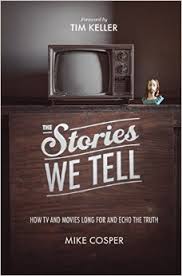 Keller (Crossway) $15.99 I will be brief: I adored this book, so enjoyed it, thought it was one of the very best books exploring pop culture that I’ve read in a long while. Some (like the must read Eyes Wide Open: Looking for God in Popular Culture by William D. Romanowski) are broad and lay the Biblical basis for thinking faithfully about the popular arts. Others examine certain films or trends within pop culture — I hope you know David Dark’s extraordinary Everyday Apocalypse: The Sacred Revealed in Radiohead, the Simpsons, and Other Pop Culture Icons which is my favorite example of this.) This new one, though, Stories We Tell, has an exceptionally clear and well balanced framework, is both pious and open-minded, celebrating the imagination God has given us and our disposition to tell and enjoy stories. Ponder the subtitle a bit — this so rich. But it also spends most of its time looking at TV shows, past and present, and is as up to date as any book like this, including some ruminations on current reality shows. The cover — that retro look with an old TV and a cheesy Jesus statue — is maybe supposed to appeal to the hip or ironic, but please know that this is a truly earnest, insightful, joy-filled and very helpful book that is very current. Given how much time people spend watching TV and movies, I think this is a very important resource to have around.
Keller (Crossway) $15.99 I will be brief: I adored this book, so enjoyed it, thought it was one of the very best books exploring pop culture that I’ve read in a long while. Some (like the must read Eyes Wide Open: Looking for God in Popular Culture by William D. Romanowski) are broad and lay the Biblical basis for thinking faithfully about the popular arts. Others examine certain films or trends within pop culture — I hope you know David Dark’s extraordinary Everyday Apocalypse: The Sacred Revealed in Radiohead, the Simpsons, and Other Pop Culture Icons which is my favorite example of this.) This new one, though, Stories We Tell, has an exceptionally clear and well balanced framework, is both pious and open-minded, celebrating the imagination God has given us and our disposition to tell and enjoy stories. Ponder the subtitle a bit — this so rich. But it also spends most of its time looking at TV shows, past and present, and is as up to date as any book like this, including some ruminations on current reality shows. The cover — that retro look with an old TV and a cheesy Jesus statue — is maybe supposed to appeal to the hip or ironic, but please know that this is a truly earnest, insightful, joy-filled and very helpful book that is very current. Given how much time people spend watching TV and movies, I think this is a very important resource to have around.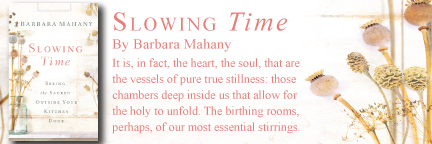 lowing Time: Seeing the Sacred Outside Your Kitchen Door Barbara Mahany (Abingdon) $15.99 The important industry journal Publishers Weekly said this was one of the top 10 books of the fall (in the “religion” category) and that made me eager to see it. Abingdon has been doing some very lush, well-written, interesting books of late (think of Debbie Blue’s breathtaking Birds of the Bible or the two books, mentioned above, by Lisa Nichols Hickman, or the wonderfully little book on prayer called The Book of Not So Common Prayer by Linda McCullough Moore; I think editor Lil Copan and wordsmith Lauren Winner have something to do this glorious output.)
lowing Time: Seeing the Sacred Outside Your Kitchen Door Barbara Mahany (Abingdon) $15.99 The important industry journal Publishers Weekly said this was one of the top 10 books of the fall (in the “religion” category) and that made me eager to see it. Abingdon has been doing some very lush, well-written, interesting books of late (think of Debbie Blue’s breathtaking Birds of the Bible or the two books, mentioned above, by Lisa Nichols Hickman, or the wonderfully little book on prayer called The Book of Not So Common Prayer by Linda McCullough Moore; I think editor Lil Copan and wordsmith Lauren Winner have something to do this glorious output.)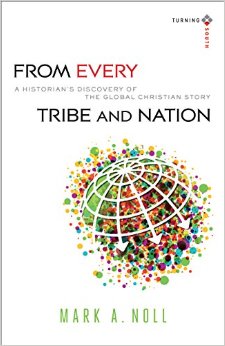 (Baker Academic) $19.99 I have raved about this unfolding series of books before; this new one is the third in the “Turning South” series, which tells the stories of “Christian scholars in an age of world Christianity.” First up was Journey Towards Justice, the fabulous memoir/argument by Nicholas Wolterstorff who told passionately of how he came to take up his work as a political philosopher, inspired by meeting suffering Christians in Palestine and South Africa. Next was Reading a Different Story: A Christian Scholar’s Journey from America to Africa a wonderful, slim book by literature professor Susan VanZanten who wrote wonderfully about her coming to appreciate the stories of the developing world. This new one shows how this leading historian, by offering his own personal account, has come to do his work, and particularly his recent work on the global Christian story. Rave, rave, reviews grace the back, from Richard Mouw, George Marsden, Philip Jenkins and Robert Louis Wilken. Who knew that Noll was such a good storyteller — he tells of his own boyhood growing up Baptist in Cedar Rapids, Iowa, his early love of baseball, and, now, to his groundbreaking work on global faith.
(Baker Academic) $19.99 I have raved about this unfolding series of books before; this new one is the third in the “Turning South” series, which tells the stories of “Christian scholars in an age of world Christianity.” First up was Journey Towards Justice, the fabulous memoir/argument by Nicholas Wolterstorff who told passionately of how he came to take up his work as a political philosopher, inspired by meeting suffering Christians in Palestine and South Africa. Next was Reading a Different Story: A Christian Scholar’s Journey from America to Africa a wonderful, slim book by literature professor Susan VanZanten who wrote wonderfully about her coming to appreciate the stories of the developing world. This new one shows how this leading historian, by offering his own personal account, has come to do his work, and particularly his recent work on the global Christian story. Rave, rave, reviews grace the back, from Richard Mouw, George Marsden, Philip Jenkins and Robert Louis Wilken. Who knew that Noll was such a good storyteller — he tells of his own boyhood growing up Baptist in Cedar Rapids, Iowa, his early love of baseball, and, now, to his groundbreaking work on global faith. 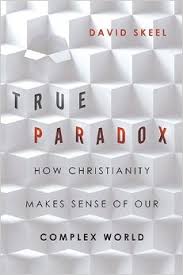 $15.00 I admire this legal scholar, a Presbyterian professor of Corporate law at University of Pennsylvania Law School. (Not too shabby, eh?) who has often engaged in thoughtful forums on campuses, nicely representing Biblical notions of goodness, justice, tolerance, and truth. He’s a very impressive guy.
$15.00 I admire this legal scholar, a Presbyterian professor of Corporate law at University of Pennsylvania Law School. (Not too shabby, eh?) who has often engaged in thoughtful forums on campuses, nicely representing Biblical notions of goodness, justice, tolerance, and truth. He’s a very impressive guy.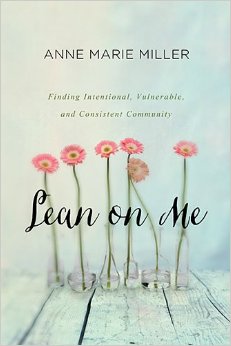 (Nelson) $15.99 Some of us know Anne Marie Miller as the former Anne Jackson, who wrote the funny, fabulous, helpful book on the epidemic of church leader’s burn-out called Mad Church Disease and the engaging, even horrific at times, yet wonderful collection of stories (and art pieces) of things people feel they couldn’t share in church, Permission to Speak Freely: Essays and Art on Fear, Confession, and Grace. This book seems to be the natural follow up to these two, and posits — in her beautiful, winsome, engaging style — that real community is the antidote to burnout and shame, exhaustion and loneliness. In other words, in religious institutions where “mad church disease” is so prevalent, and yet where we are discouraged from talking about our brokenness, fears, or foibles, we simply have to re-doubled our efforts to seek grace-filled, Christ-centered, life-giving friendships. It says on the back cover, “we live in a world and a generation where the world ‘community’ is often discussed. But how genuine and authentic are your relationships, really? Miller noticed an important tension all of us must recognize in order to have life-giving friendships. “We desperately want to belong yet as the same time, we yearn for independence.” Yeah, there’s that. I am very glad that Anne has attempted to tackle this. She’s gonna tell it like it is, I’m sure.
(Nelson) $15.99 Some of us know Anne Marie Miller as the former Anne Jackson, who wrote the funny, fabulous, helpful book on the epidemic of church leader’s burn-out called Mad Church Disease and the engaging, even horrific at times, yet wonderful collection of stories (and art pieces) of things people feel they couldn’t share in church, Permission to Speak Freely: Essays and Art on Fear, Confession, and Grace. This book seems to be the natural follow up to these two, and posits — in her beautiful, winsome, engaging style — that real community is the antidote to burnout and shame, exhaustion and loneliness. In other words, in religious institutions where “mad church disease” is so prevalent, and yet where we are discouraged from talking about our brokenness, fears, or foibles, we simply have to re-doubled our efforts to seek grace-filled, Christ-centered, life-giving friendships. It says on the back cover, “we live in a world and a generation where the world ‘community’ is often discussed. But how genuine and authentic are your relationships, really? Miller noticed an important tension all of us must recognize in order to have life-giving friendships. “We desperately want to belong yet as the same time, we yearn for independence.” Yeah, there’s that. I am very glad that Anne has attempted to tackle this. She’s gonna tell it like it is, I’m sure. centered, mature. It’s a book decrying the hip new trend of being over-the-top passionate, extraordinary, world-changing, transformational, emerging, missional, big and bold, radical, celebrating instead the rhythms of the ordinary life of discipleship, and the ordinary means of grace. Offering “ordinary and content” in part two instead of “radical and restless” is a useful rubric, and it works well, bringing grace and truth to those of us a bit too hyped up on making a difference. Mark Galli notes that “Horton’s Ordinary is, well, extraordinary.” And indeed, it is. As a confessional Presbyterian, especially, I’m fond of this approach (even though it would be reasonable to worry if such a message might create luke-warm faith or cultural accommodation. Horton does not think so, and I suspect he is right.)
centered, mature. It’s a book decrying the hip new trend of being over-the-top passionate, extraordinary, world-changing, transformational, emerging, missional, big and bold, radical, celebrating instead the rhythms of the ordinary life of discipleship, and the ordinary means of grace. Offering “ordinary and content” in part two instead of “radical and restless” is a useful rubric, and it works well, bringing grace and truth to those of us a bit too hyped up on making a difference. Mark Galli notes that “Horton’s Ordinary is, well, extraordinary.” And indeed, it is. As a confessional Presbyterian, especially, I’m fond of this approach (even though it would be reasonable to worry if such a message might create luke-warm faith or cultural accommodation. Horton does not think so, and I suspect he is right.) Piper & David Mathis (Crossway) $17.99
Piper & David Mathis (Crossway) $17.99  Allow me to sneak in another new Lewis title, too, that just arrived last week: this one is written by a pastor of Adult Discipleship and College Ministries at Bidwell Presbyterian (USA) Church in Chico, CA, although he had previously served at the prestigious Faith Avenue Presbyterian Church. In this new paperback he shows us how Lewis can be a good guide for us in our own “ups and downs” as we cope with the hardships of our own faith journey. Lewis felt the absence of God in his life, he wrestled with grief, with doubt, and he knew temptation. Why haven’t we unpacked this more?
Allow me to sneak in another new Lewis title, too, that just arrived last week: this one is written by a pastor of Adult Discipleship and College Ministries at Bidwell Presbyterian (USA) Church in Chico, CA, although he had previously served at the prestigious Faith Avenue Presbyterian Church. In this new paperback he shows us how Lewis can be a good guide for us in our own “ups and downs” as we cope with the hardships of our own faith journey. Lewis felt the absence of God in his life, he wrestled with grief, with doubt, and he knew temptation. Why haven’t we unpacked this more? new and I’ve only skimmed them, enough to say that they all deserve more then pith, even more than brevity. I’m too busy, though, for much more, now, but these are so good, I just had to tell you that we have them here in stock, on sale for BookNotes readers.
new and I’ve only skimmed them, enough to say that they all deserve more then pith, even more than brevity. I’m too busy, though, for much more, now, but these are so good, I just had to tell you that we have them here in stock, on sale for BookNotes readers. 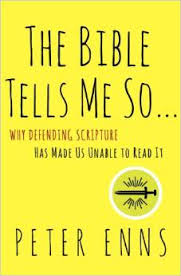 he Bible Tells Me So: Why Defending Scripture Has Made Us Unable to Read it Peter Enns (HarperOne) $25.99 Not too many professional Bible scholars have such deep history in places like an evangelical Christian college and Westminster Theological Seminary, where Enns was edged out having taught there for 14 years, as well as the more mainstream Jewish and liberal Protestant scholars at Harvard Divinity School where he was profoundly tutored about what to do “when the Bible doesn’t behave.” And none are as witty and entertaining as Enns as he walks us through the Bible’s big problems (Canaanite genocide, just for instance) and how to best understand them all. Rachel Held Evans says it is a “game-changer” and Brian McLaren says it is “super-enjoyable, highly informative, disarmingly honest, and downright liberating.” Tony Campolo writes, “I, as an old-fashioned evangelical have some problems with what he has written, I think that many other readers will find answers to some of the most perplexing questions that they have about the Bible.”
he Bible Tells Me So: Why Defending Scripture Has Made Us Unable to Read it Peter Enns (HarperOne) $25.99 Not too many professional Bible scholars have such deep history in places like an evangelical Christian college and Westminster Theological Seminary, where Enns was edged out having taught there for 14 years, as well as the more mainstream Jewish and liberal Protestant scholars at Harvard Divinity School where he was profoundly tutored about what to do “when the Bible doesn’t behave.” And none are as witty and entertaining as Enns as he walks us through the Bible’s big problems (Canaanite genocide, just for instance) and how to best understand them all. Rachel Held Evans says it is a “game-changer” and Brian McLaren says it is “super-enjoyable, highly informative, disarmingly honest, and downright liberating.” Tony Campolo writes, “I, as an old-fashioned evangelical have some problems with what he has written, I think that many other readers will find answers to some of the most perplexing questions that they have about the Bible.” 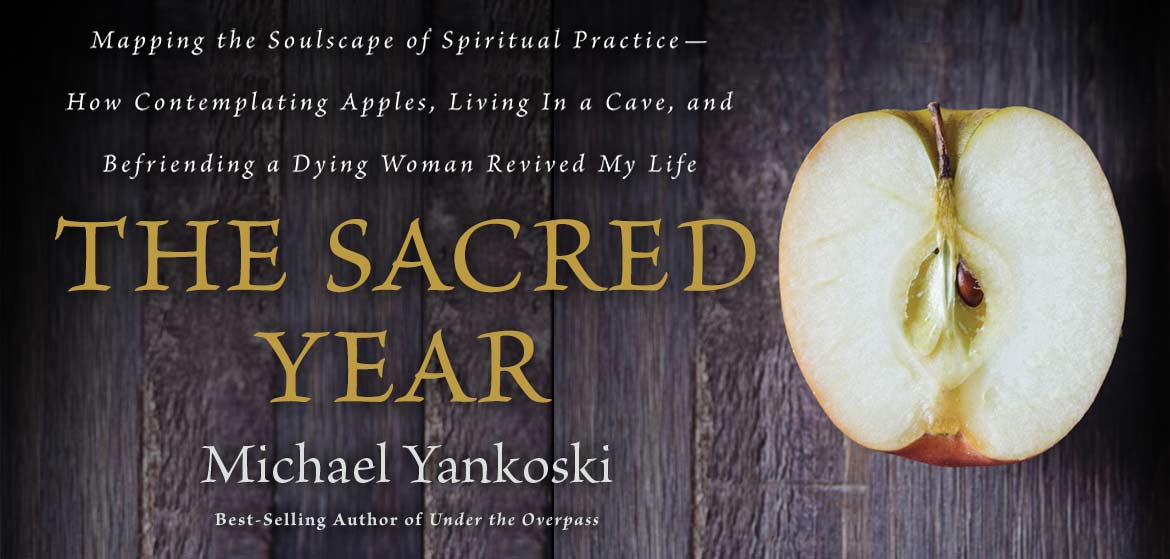 he Sacred Year Michael Yankoski (Nelson) $15.99 All right, I’ll admit it, I was drawn to this because of the cover. Yankoski is an energetic speaker and his book about living with the homeless — Under the Overpass — is fantastic: clear, passionate and inspiring. He received his MA at Regent in British Columbia and is a novitiate Oblate of St. Benedict, which is pretty cool. Here is what it says on the lovely front cover: “Mapping the Soulscape of Spiritual Practice — How Contemplating Apples, Living in a Cave, and Befriending a Dying Woman Revived my Life.”
he Sacred Year Michael Yankoski (Nelson) $15.99 All right, I’ll admit it, I was drawn to this because of the cover. Yankoski is an energetic speaker and his book about living with the homeless — Under the Overpass — is fantastic: clear, passionate and inspiring. He received his MA at Regent in British Columbia and is a novitiate Oblate of St. Benedict, which is pretty cool. Here is what it says on the lovely front cover: “Mapping the Soulscape of Spiritual Practice — How Contemplating Apples, Living in a Cave, and Befriending a Dying Woman Revived my Life.”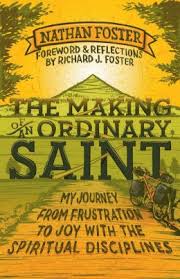 he Making of An Ordinary Saint: My Journey From Frustration to Joy with the Spiritual Disciplines Nathan Foster (Baker) $14.99 We know Nathan is a storyteller — he wrote a captivating, raw book about the growing distance he felt from his famous father (Richard Foster) and the subsequent disillusionment about Christianity he faced as a troubled young adult, and how he wisely challenged his dad to hike a bunch of Colorado mountains with him, in a last-ditch effort to restore their relationship. (That was the very nice Wisdom Chaser: Finding My Father at 14,000 Feet.) I heard the two of them do a splendid, entertaining tag-team talk at the Calvin College Festival of Faith and Writing last spring, and have been waiting for this book ever since. In a way, this is a second generation Celebration of Discipline as the hip, young son tells of his own frustrations (and restorative glories) of practicing the classic spiritual disciplines. Ruth Haley Barton says it is “Delightful…. simply delightful” and Eugene Peterson says “Read this book and find yourself a new companion as you follow Jesus.” Yeah, that’s it. He is a honest, ordinary, reliable companion. Richard Forster, by the way, offers a nice foreword and good reflections throughout.
he Making of An Ordinary Saint: My Journey From Frustration to Joy with the Spiritual Disciplines Nathan Foster (Baker) $14.99 We know Nathan is a storyteller — he wrote a captivating, raw book about the growing distance he felt from his famous father (Richard Foster) and the subsequent disillusionment about Christianity he faced as a troubled young adult, and how he wisely challenged his dad to hike a bunch of Colorado mountains with him, in a last-ditch effort to restore their relationship. (That was the very nice Wisdom Chaser: Finding My Father at 14,000 Feet.) I heard the two of them do a splendid, entertaining tag-team talk at the Calvin College Festival of Faith and Writing last spring, and have been waiting for this book ever since. In a way, this is a second generation Celebration of Discipline as the hip, young son tells of his own frustrations (and restorative glories) of practicing the classic spiritual disciplines. Ruth Haley Barton says it is “Delightful…. simply delightful” and Eugene Peterson says “Read this book and find yourself a new companion as you follow Jesus.” Yeah, that’s it. He is a honest, ordinary, reliable companion. Richard Forster, by the way, offers a nice foreword and good reflections throughout. 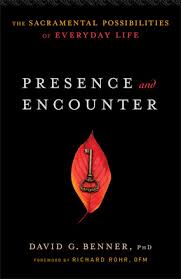 resence and Encounter: The Sacramental Possibilities of Everyday Life David G. Benner (Foreword by Richard Rohr) (Brazos Press) $15.99 I am really drawn to these kinds of books, about the spirituality of the ordinary, the mystical embedded in the mundane, practicing the presence of God and so forth. Some are truly luminous, beautifully done and so very helpful. I am sure that this book — inspired by the author’s early confrontation with the “I-Thou” worldview of Jewish philosopher Martin Buber — will help us realize that attentive presence is what allows for real encounters to occur. As it says in the advanced promo: “Drawing on over thirty-five years of experience integrating psychology and spirituality, Benner examines the transformational possibilities of spiritual presence and encounter in fresh, exciting, and practical ways.” There are end-of-chapter reflection exercises for individuals or groups, and these are profound and experiential (that is, not just discussion-based study questions.) This is a bit deep, and may be important for those longing for greater discernment about God’s presence in their daily lives.
resence and Encounter: The Sacramental Possibilities of Everyday Life David G. Benner (Foreword by Richard Rohr) (Brazos Press) $15.99 I am really drawn to these kinds of books, about the spirituality of the ordinary, the mystical embedded in the mundane, practicing the presence of God and so forth. Some are truly luminous, beautifully done and so very helpful. I am sure that this book — inspired by the author’s early confrontation with the “I-Thou” worldview of Jewish philosopher Martin Buber — will help us realize that attentive presence is what allows for real encounters to occur. As it says in the advanced promo: “Drawing on over thirty-five years of experience integrating psychology and spirituality, Benner examines the transformational possibilities of spiritual presence and encounter in fresh, exciting, and practical ways.” There are end-of-chapter reflection exercises for individuals or groups, and these are profound and experiential (that is, not just discussion-based study questions.) This is a bit deep, and may be important for those longing for greater discernment about God’s presence in their daily lives. $15.99 I hope you recall how we raved about Shinabarger’s previous book about a more simple — and creatively generous — lifestyle (called More or Less
$15.99 I hope you recall how we raved about Shinabarger’s previous book about a more simple — and creatively generous — lifestyle (called More or Less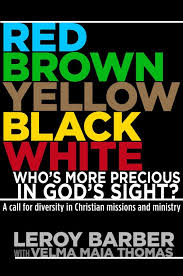 ed Brown Yellow Black White: Who’s More Precious in God’s Sight? A Call for Diversity in Christian Missions and Ministry Leroy Barber with Velma Maia Thomas (Jericho) $26.99 I have been with Leroy on several occasions and just love him — he’s real, funny, dynamic, caring, and a true leader, bringing together folks to care about racial justice, wholistic ministry, urban renewal and more. He told riveting short stories of urban youth and how Mission Year communities work for renewal in their lives and in their neighborhoods in the creative small book,New Neighbor, and then wrote a more general book which I adored called Every Day Missions. (If you haven’t used that in your small group or book club, it works really well.)
ed Brown Yellow Black White: Who’s More Precious in God’s Sight? A Call for Diversity in Christian Missions and Ministry Leroy Barber with Velma Maia Thomas (Jericho) $26.99 I have been with Leroy on several occasions and just love him — he’s real, funny, dynamic, caring, and a true leader, bringing together folks to care about racial justice, wholistic ministry, urban renewal and more. He told riveting short stories of urban youth and how Mission Year communities work for renewal in their lives and in their neighborhoods in the creative small book,New Neighbor, and then wrote a more general book which I adored called Every Day Missions. (If you haven’t used that in your small group or book club, it works really well.) 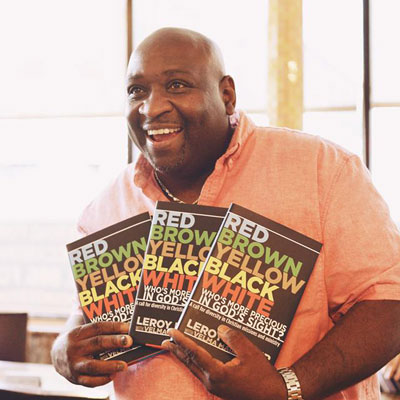 y within US ministries, and the implications of our racial dysfunctions upon who ends up taking up mission projects, domestically and globally. I think this may end up being a much-discussed, very significant book as it brings some things together about multi-cultural diversity and racism and missions that no other book has yet done. If you are in any para-church organization or mission agency, especially, it is simply a must-read — the sooner, the better, too. As Jim Wallis says, “It is the start of a much-needed conversation on diversity in missions leadership from a man who has lived out these ideas in his own life in an exemplary way.” Ground-breaking, yes, but with practical, action-oriented solutions. Let’s spread the word on this so the those who need to grapple with it learn about it.
y within US ministries, and the implications of our racial dysfunctions upon who ends up taking up mission projects, domestically and globally. I think this may end up being a much-discussed, very significant book as it brings some things together about multi-cultural diversity and racism and missions that no other book has yet done. If you are in any para-church organization or mission agency, especially, it is simply a must-read — the sooner, the better, too. As Jim Wallis says, “It is the start of a much-needed conversation on diversity in missions leadership from a man who has lived out these ideas in his own life in an exemplary way.” Ground-breaking, yes, but with practical, action-oriented solutions. Let’s spread the word on this so the those who need to grapple with it learn about it.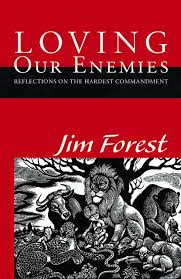 oving Our Enemies: Reflections on the Hardest Commandment Jim Forest (Orbis) $20.00 Those of us who have been involved in peacemaking ministries or anti-war activism know well the name of this author; he was an international leader of Fellowship of Reconciliation, a long-standing, vivid activist and advocate for nonviolent resistance, and wrote what some still think are the best biographies of both Dorothy Day (All Is Grace: A Biography of Dorothy Day) and Thomas Merton (Living with Wisdom: A Life of Thomas Merton.) I met Forest years ago, and admire his courage and depth and ecumenicity. He is now an Orthodox Christian (and has written a few good books on icons, too), living in the Netherlands. I am sure this will be very, very moving, insightful, a mixture of deep spirituality, Biblical study, and a bit of savvy public theology. Rowan Williams says it is “a statement of the gospel challenge and the gospel hope so clear that it is frightening; this is real, this is possible, this cannot be written off…” Even if one isn’t drawn to the bigger social issues of the day, all of us must learn to forgive, after all, and this certainly is a very helpful guide.
oving Our Enemies: Reflections on the Hardest Commandment Jim Forest (Orbis) $20.00 Those of us who have been involved in peacemaking ministries or anti-war activism know well the name of this author; he was an international leader of Fellowship of Reconciliation, a long-standing, vivid activist and advocate for nonviolent resistance, and wrote what some still think are the best biographies of both Dorothy Day (All Is Grace: A Biography of Dorothy Day) and Thomas Merton (Living with Wisdom: A Life of Thomas Merton.) I met Forest years ago, and admire his courage and depth and ecumenicity. He is now an Orthodox Christian (and has written a few good books on icons, too), living in the Netherlands. I am sure this will be very, very moving, insightful, a mixture of deep spirituality, Biblical study, and a bit of savvy public theology. Rowan Williams says it is “a statement of the gospel challenge and the gospel hope so clear that it is frightening; this is real, this is possible, this cannot be written off…” Even if one isn’t drawn to the bigger social issues of the day, all of us must learn to forgive, after all, and this certainly is a very helpful guide. 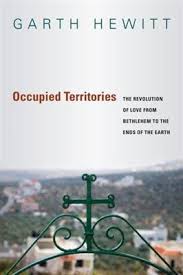 ccupied Territories: The Revolution of Love From Bethlehem to the Ends of the Earth Garth Hewitt (IVP) $16.00 This surely deserves a more substantive review, but for now you may know that Hewitt was a British evangelical folk/rock singer, doing thoughtful, engaging Christian music with friends of his such as the late Mark Heard and other socially conscience faith-based troubadours. (Has he ever played with Bruce Cockburn? I wonder.) Hewitt has worked for the Micah Trust traveling all over the world as a storyteller and advocate for just solutions to some of the world’s most grueling problems, and has written widely, and beautifully, including liturgical resources for peace and justice. I have a friend who knows him well, who worked on this manuscript a bit, and who assures me it is one of the best books in many a year!
ccupied Territories: The Revolution of Love From Bethlehem to the Ends of the Earth Garth Hewitt (IVP) $16.00 This surely deserves a more substantive review, but for now you may know that Hewitt was a British evangelical folk/rock singer, doing thoughtful, engaging Christian music with friends of his such as the late Mark Heard and other socially conscience faith-based troubadours. (Has he ever played with Bruce Cockburn? I wonder.) Hewitt has worked for the Micah Trust traveling all over the world as a storyteller and advocate for just solutions to some of the world’s most grueling problems, and has written widely, and beautifully, including liturgical resources for peace and justice. I have a friend who knows him well, who worked on this manuscript a bit, and who assures me it is one of the best books in many a year! 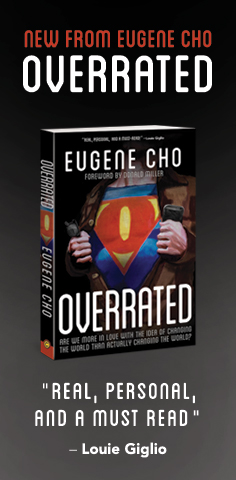 verrated: Are We More in Love With the Idea of Changing the World Than Actually Changing the World? Eugene Cho (Cook) $15.99 I could hardly put this down, and could hardly stop grinning, so glad to hear an evangelical leader say this mature, wise, honest stuff about the recent rhetoric about changing the world, transforming the culture, serving the poor, et cetera, et cetera. (And, might I add, honest about his own foibles and lifestyle, motivations and family life.) The subtitle — Are We More in Love With the Idea of Changing the World Than Actually Changing the World? — says it all, but you will want to be warned that the author (who not only is a pastor but the visionary founder of One Day’s Wages) does in fact, want to change the world. His organization works to alleviate extreme global poverty and Cho does want to recruit us to make choices in our own lives to be more giving and active, more Christ-centered and faithful in our service to others. There’s a cool foreword by Donald Miller, too, but listen to these blurbs on the back, with which I heartily concur:
verrated: Are We More in Love With the Idea of Changing the World Than Actually Changing the World? Eugene Cho (Cook) $15.99 I could hardly put this down, and could hardly stop grinning, so glad to hear an evangelical leader say this mature, wise, honest stuff about the recent rhetoric about changing the world, transforming the culture, serving the poor, et cetera, et cetera. (And, might I add, honest about his own foibles and lifestyle, motivations and family life.) The subtitle — Are We More in Love With the Idea of Changing the World Than Actually Changing the World? — says it all, but you will want to be warned that the author (who not only is a pastor but the visionary founder of One Day’s Wages) does in fact, want to change the world. His organization works to alleviate extreme global poverty and Cho does want to recruit us to make choices in our own lives to be more giving and active, more Christ-centered and faithful in our service to others. There’s a cool foreword by Donald Miller, too, but listen to these blurbs on the back, with which I heartily concur: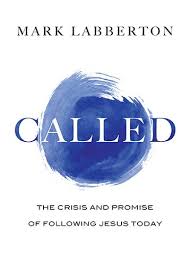
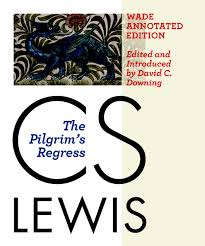 he Pilgrim’s Regress – Wade Annotated Edition C.S. Lewis; edited and introduced by David C. Downing (Eerdmans) $25.00 Wow! C.S. Lewis fans have been wishing for a volume like this for decades, and when word was out that this was in the making, it has been eagerly anticipated. It is a needed book, and will help enhance many a perplexed reader.
he Pilgrim’s Regress – Wade Annotated Edition C.S. Lewis; edited and introduced by David C. Downing (Eerdmans) $25.00 Wow! C.S. Lewis fans have been wishing for a volume like this for decades, and when word was out that this was in the making, it has been eagerly anticipated. It is a needed book, and will help enhance many a perplexed reader.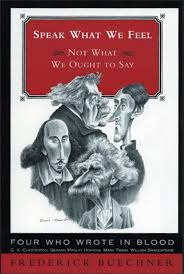 from Shakespeare’s
from Shakespeare’s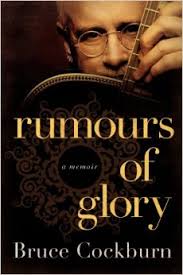
 honest about our own fears
honest about our own fears right, alongside Petra and Amy Grant (and, yes, all of Bruce
right, alongside Petra and Amy Grant (and, yes, all of Bruce ut I just can’t write about the new
ut I just can’t write about the new shout and the whispers,
shout and the whispers,
 songs inspired by Jack Kerouac, from allusions to miners
songs inspired by Jack Kerouac, from allusions to miners nother slow, sad song achingly, but
nother slow, sad song achingly, but community, even if of misfits,
community, even if of misfits,
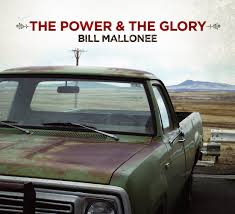
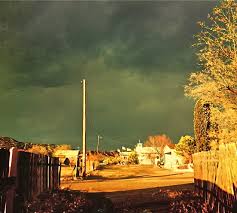
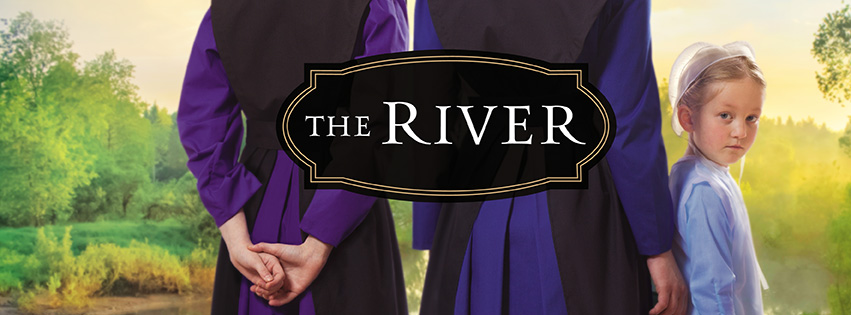
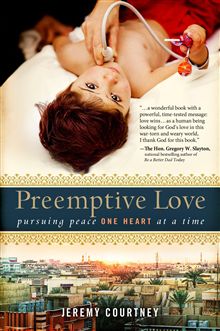 on-line price here at
on-line price here at Times best-selling author Beverly Lewis, this Thursday (September 11,
Times best-selling author Beverly Lewis, this Thursday (September 11, nd so, we can suggest that although Beverly Lewis is a genre
nd so, we can suggest that although Beverly Lewis is a genre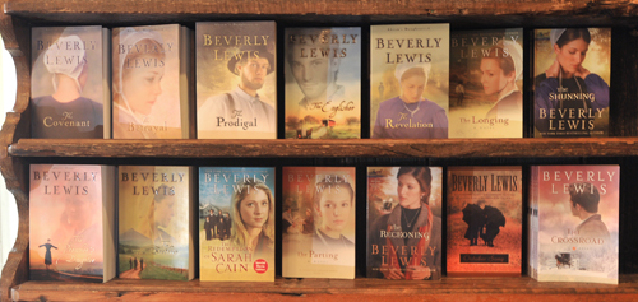
 Wendell Berry and his novels that include a vivid sense of (rural) place, but
Wendell Berry and his novels that include a vivid sense of (rural) place, but exquisitely explores
exquisitely explores bad currents or particularly
bad currents or particularly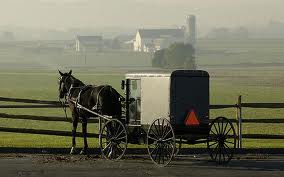 mish folks with their rejection of modern technologies and
mish folks with their rejection of modern technologies and ortland — can run the risk of
ortland — can run the risk of that treaties for
that treaties for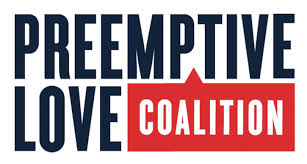 first time, real Jews, who showed themselves to
first time, real Jews, who showed themselves to Of the children his Preemptive Love Coalition has served and
Of the children his Preemptive Love Coalition has served and perhaps, a way into a new way of life for us all.
perhaps, a way into a new way of life for us all.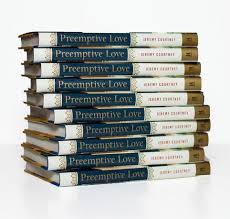

 The great new book that I mentioned last week, A Moveable Feast: Worship for the Other Six Days (ImaginationPlus; $12.00) by our friend Terry Timm, offers a whimsical, smart, and inspiring theology of worship that realizes and develops the inherent relationship between corporate Sunday worship and our various offices and tasks to which we are called on weekdays. (In fact, there is a wonderful appendix that offers an entire service around the themes of work, with worship aids, prayers and litanies and such.) It might be worthwhile Labor Day meditation for some of you.
The great new book that I mentioned last week, A Moveable Feast: Worship for the Other Six Days (ImaginationPlus; $12.00) by our friend Terry Timm, offers a whimsical, smart, and inspiring theology of worship that realizes and develops the inherent relationship between corporate Sunday worship and our various offices and tasks to which we are called on weekdays. (In fact, there is a wonderful appendix that offers an entire service around the themes of work, with worship aids, prayers and litanies and such.) It might be worthwhile Labor Day meditation for some of you.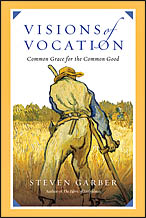
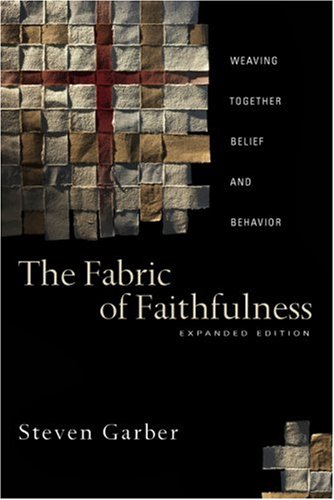 teacher grew nation-wide after the publication of his much-acclaimed book about the years beyond higher education called The Fabric of Faithfulnness: Weaving Together Believe and Behavior (IVP; $17.00; our sale price = $13.60) In that book he uses pop culture and heady philosophers and cultural critics to ask the huge questions of those trying to figure out the meaning of their lives: what does it mean to know something, and how can I keep on, with Christian
teacher grew nation-wide after the publication of his much-acclaimed book about the years beyond higher education called The Fabric of Faithfulnness: Weaving Together Believe and Behavior (IVP; $17.00; our sale price = $13.60) In that book he uses pop culture and heady philosophers and cultural critics to ask the huge questions of those trying to figure out the meaning of their lives: what does it mean to know something, and how can I keep on, with Christian 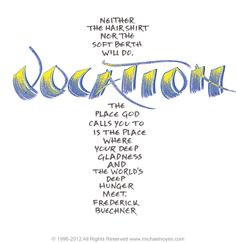 gladness and the world’s deep hunger meet”? Garber agrees, it seems, that “neither the hair shirt nor the soft berth will do” and he helps people explore that, day by day by day and although he doesn’t say so, Visions of Vocation could be seen as an extended mediation on that potent quote.
gladness and the world’s deep hunger meet”? Garber agrees, it seems, that “neither the hair shirt nor the soft berth will do” and he helps people explore that, day by day by day and although he doesn’t say so, Visions of Vocation could be seen as an extended mediation on that potent quote.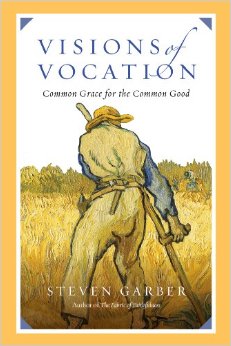 wholistic Kingdom vision, the unfolding story of God’s redeeming work in the world, taking faith into public life — you will know that Garber’s worldview and vision are consistent with (in fact has helped shape) our perspective here. I hope you know I am sincere when I say that if you appreciate our work at the bookstore, our curating of books at events, and these BookNotes reviews, you should get this book!
wholistic Kingdom vision, the unfolding story of God’s redeeming work in the world, taking faith into public life — you will know that Garber’s worldview and vision are consistent with (in fact has helped shape) our perspective here. I hope you know I am sincere when I say that if you appreciate our work at the bookstore, our curating of books at events, and these BookNotes reviews, you should get this book!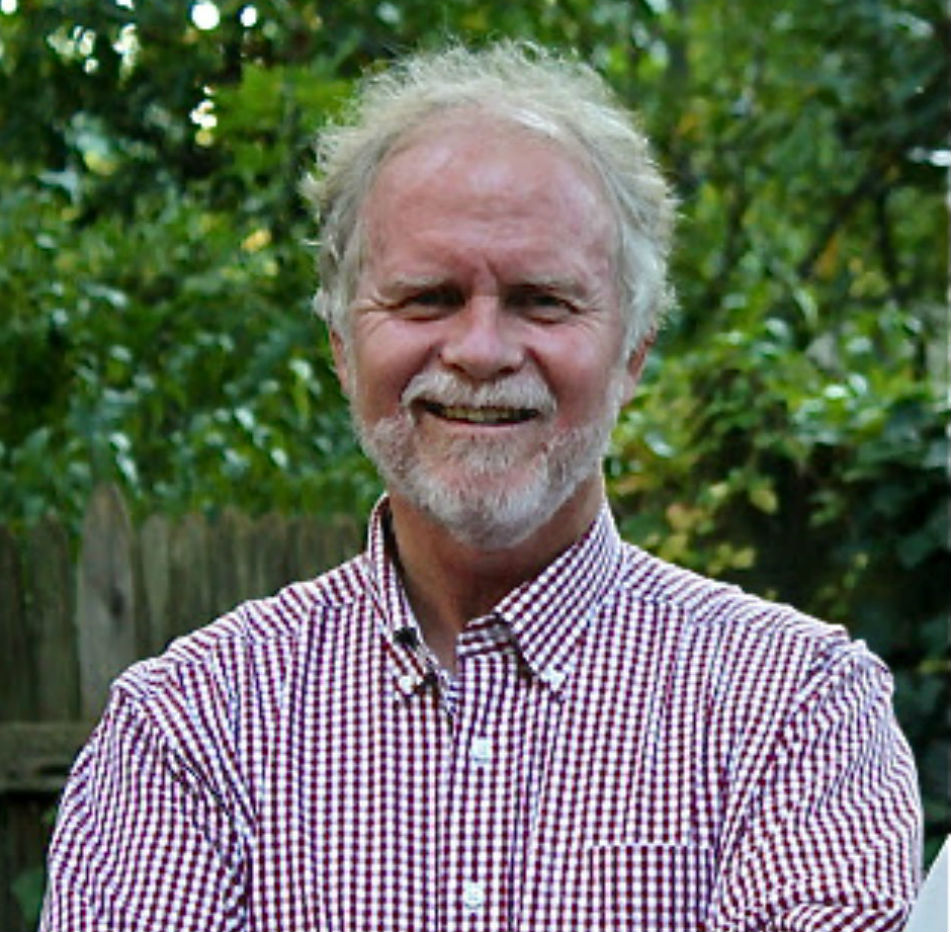 arber strikes a balance, with his gifted style, his deep knowledge, his mature guidance, and his very stimulating stories, richly told. He delightfully cites movies, mentions meetings with pop icons and rock stars. U2, Mumford & Sons, Dave Matthews Band, are quoted. He exegetes poems and rock songs and films, always offering exceptional insight, gifted as he is at doing these things. He doesn’t just cite a star so he can seem hip to a demographic, or because some editor asked him to lighten up. Steve is one of the most naturally gifted discerners of popular culture who can speak with profundity and intellectual acumen, keeping a foot properly planted in what some call the real world.
arber strikes a balance, with his gifted style, his deep knowledge, his mature guidance, and his very stimulating stories, richly told. He delightfully cites movies, mentions meetings with pop icons and rock stars. U2, Mumford & Sons, Dave Matthews Band, are quoted. He exegetes poems and rock songs and films, always offering exceptional insight, gifted as he is at doing these things. He doesn’t just cite a star so he can seem hip to a demographic, or because some editor asked him to lighten up. Steve is one of the most naturally gifted discerners of popular culture who can speak with profundity and intellectual acumen, keeping a foot properly planted in what some call the real world.  attitude. Make a difference in politics or business or media or medicine? I can hardly make a difference in my own skin or my own family. It’s a bumpy ride, this journey to live well in a screwy world, and Garber thinks we need a strong and lasting sense of vocation to withstand the tendencies to grow cold, to care less, to give up. We need to internalize deep and solid and fruitful visions of vocation, knowing just what we are called to do and be.
attitude. Make a difference in politics or business or media or medicine? I can hardly make a difference in my own skin or my own family. It’s a bumpy ride, this journey to live well in a screwy world, and Garber thinks we need a strong and lasting sense of vocation to withstand the tendencies to grow cold, to care less, to give up. We need to internalize deep and solid and fruitful visions of vocation, knowing just what we are called to do and be. 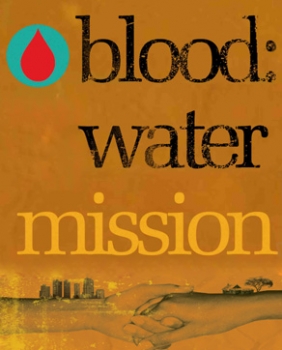 environmentally-sensitive burger chain using organic ingredients and grass-fed cattle to a Korean friend who works at the World Bank to a Lawrence, Kansas, carpenter guy, a former student of his who now owns his own small construction business, rebuilding homes with integrity, stories are shared as examples of people who are intentional about their live’s callings and the fidelity needed in that arena or responsibility. In each case, these folks have stepped into a way of doing their work that starts with deep knowing. He describes one as a person with “a seriousness about things that matter and a softness of heart.”
environmentally-sensitive burger chain using organic ingredients and grass-fed cattle to a Korean friend who works at the World Bank to a Lawrence, Kansas, carpenter guy, a former student of his who now owns his own small construction business, rebuilding homes with integrity, stories are shared as examples of people who are intentional about their live’s callings and the fidelity needed in that arena or responsibility. In each case, these folks have stepped into a way of doing their work that starts with deep knowing. He describes one as a person with “a seriousness about things that matter and a softness of heart.”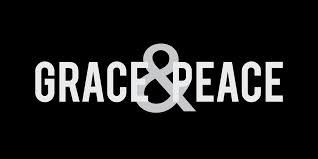 know there is much written these days about a gospel-centered life, about the doctrine of grace, both as it helps us understand the work of Christ’s cross (for our justification and sanctification) and as a style of nonjudgmental living, a gracious shift away from legalism. Yes, yes, we need gospel-drenched teachings. But Garber talks also about what some call “common grace” which is to say that God (in patience and mercy) upholds the creation for all creatures under the sun, and all of life somehow can point us towards the truth of the God who is there, and the sustainable abundance of life as it was meant to be. We can happily live in the real world, spending our ordinary days, in our ordinary occupations, knowing of God’s presence we can offer grace to a needy world. Perhaps our gift will be mundane; in our day to day we will learn to incarnate goodness, showing forth lives that embody meaning. In other words, living well for the sake of the world, because of God, makes sense, unfolds the meaning of our days. I think that may be close to what Garber means by a call to coherence — to craft lives that makes sense because the gospel is true.
know there is much written these days about a gospel-centered life, about the doctrine of grace, both as it helps us understand the work of Christ’s cross (for our justification and sanctification) and as a style of nonjudgmental living, a gracious shift away from legalism. Yes, yes, we need gospel-drenched teachings. But Garber talks also about what some call “common grace” which is to say that God (in patience and mercy) upholds the creation for all creatures under the sun, and all of life somehow can point us towards the truth of the God who is there, and the sustainable abundance of life as it was meant to be. We can happily live in the real world, spending our ordinary days, in our ordinary occupations, knowing of God’s presence we can offer grace to a needy world. Perhaps our gift will be mundane; in our day to day we will learn to incarnate goodness, showing forth lives that embody meaning. In other words, living well for the sake of the world, because of God, makes sense, unfolds the meaning of our days. I think that may be close to what Garber means by a call to coherence — to craft lives that makes sense because the gospel is true. 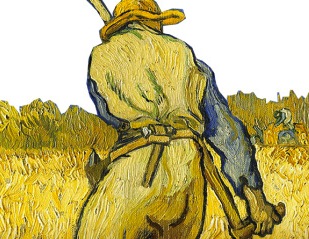
 his way of life, being intentional about being open to God
his way of life, being intentional about being open to God It is fun, too, to read about the feasts and meals, complete with local
It is fun, too, to read about the feasts and meals, complete with local peace and hope
peace and hope doctors, of
doctors, of
 having read his story. What does it take to tell a poor peasant mother that her
having read his story. What does it take to tell a poor peasant mother that her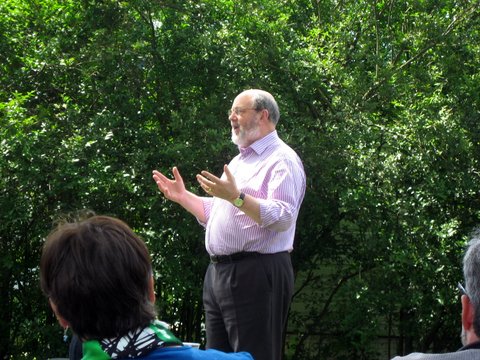 there’s a first time for everything. I found
there’s a first time for everything. I found sure, was an Eerdmans one, who helped us learn a bit about the book biz. And they’ve published some of our perennial best sellers — When the Kings Come Marching In by Rich Mouw, Creation Regained by Al Wolters, and authors such as Marva Dawn, Eugene Peterson, Ken Bailey, Nicholas Woltersdorff, and so many more.
sure, was an Eerdmans one, who helped us learn a bit about the book biz. And they’ve published some of our perennial best sellers — When the Kings Come Marching In by Rich Mouw, Creation Regained by Al Wolters, and authors such as Marva Dawn, Eugene Peterson, Ken Bailey, Nicholas Woltersdorff, and so many more. 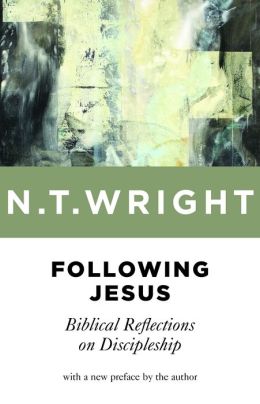 ollowing Jesus: Biblical Reflections on Discipleship (Eerdmans) $14.00 our price = $11.20
ollowing Jesus: Biblical Reflections on Discipleship (Eerdmans) $14.00 our price = $11.20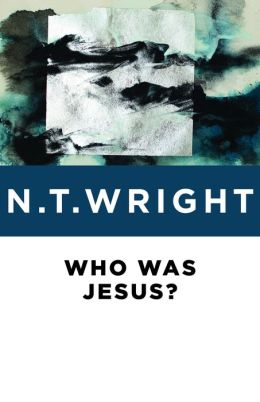 ho Was Jesus? (Eerdmans) $14.00
ho Was Jesus? (Eerdmans) $14.00 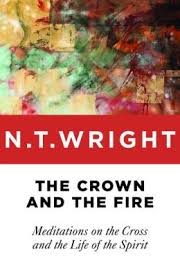 he Crown and the Fire: Meditations on the Cross and the Life of the Spirit (Eerdmans) $14.00
he Crown and the Fire: Meditations on the Cross and the Life of the Spirit (Eerdmans) $14.00 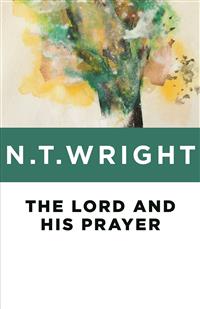 he Lord and His Prayer (Eerdmans) $11.00
he Lord and His Prayer (Eerdmans) $11.00 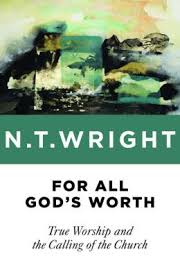 or All God’s Worth: True Worship and the Calling of the Church (Eerdmans) $14.00
or All God’s Worth: True Worship and the Calling of the Church (Eerdmans) $14.00 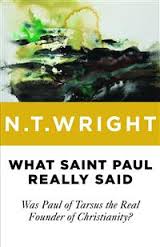 hat Saint Paul Really Said: Was Paul of Tarsus the Real Founder of Christianity (Eerdmans) $18.00
hat Saint Paul Really Said: Was Paul of Tarsus the Real Founder of Christianity (Eerdmans) $18.00 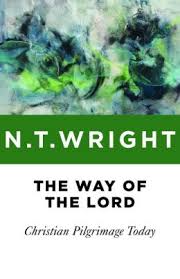 he Way of the Lord: Christian Pilgrimage Today (Eerdmans) $14.00
he Way of the Lord: Christian Pilgrimage Today (Eerdmans) $14.00 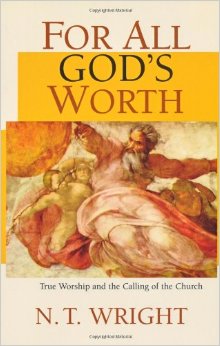
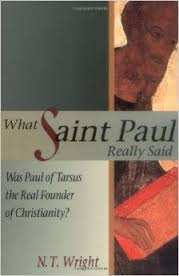 for BETTER THAN HALF PRICE. What Saint Paul Really Said usually sells for $17 and we have ’em at just $8. For All God’s Worth used to sell for $13 and we have ’em for just $6. Who Was Jesus, The Lord and His Prayer and The Way of the Lord are also, while supplies last, just $6. Nice, eh?
for BETTER THAN HALF PRICE. What Saint Paul Really Said usually sells for $17 and we have ’em at just $8. For All God’s Worth used to sell for $13 and we have ’em for just $6. Who Was Jesus, The Lord and His Prayer and The Way of the Lord are also, while supplies last, just $6. Nice, eh?